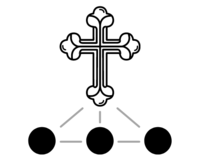about our mission
the confessionalists
The Confessionalists are Christians who believe the Bible calls for all-of-society confession and covenanting with King Jesus today. We see social confession not as an end result of Jesus’ gospel campaign, but as something integral to it. We seek ways to put it into practice soon like many Reformed societies did before the influence of modernism.
There are many biblical examples, but perhaps the most important example for us comes from Ezra and Nehemiah. When they confessed their societal sins and committed to following God, they did so as a subordinate society under Persian rule. This example shows that states, counties, and towns could confess and find forgiveness as a local society today, even if the United States does not obey God’s law.
Here is the logic of confessionalism:
Only by Christ’s power can we begin to have a righteous society. And only by covenant is Christ’s power available to us. The covenant required for this is a social covenant.
Another way of saying it is this:
Societal curses are caused by societal sins and only removed by societal confession.
Interestingly, these social covenants are presented as options to the people. The people could opt-in to this deal, but they had to do it all together. The covenant blessings and curses of Deuteronomy 28 came upon a collective, confessing and covenanting society. We have to reset our minds to this type of thinking if we hope to get off the track we are currently on. We need to return to the Bible’s view that societies (nations, towns, etc.) are seen by God holistically.
Social confessionalism was the practice of Reformed societies before the influence of modernism. German towns during the Reformation, the Scottish Covenanters, the Huguenots, and the early American settlements all confessed God as their Lord. They viewed confessionalism not as something that comes at the end of the gospel campaign, but something required to start the path of societal righteousness.
The Confessionalists are committed to a proactive, positive approach. They believe strategic withdrawal is a faithful action, but if we do withdraw, it should be for the purpose of rebuilding. We seek to build Local Christendom–a comprehensive society–rather than just a community. We are seeking ways to do this soon, and one way is to revive the practice of the deliberate Christian settlements. Rural America provides a great opportunity to do this today. By God’s grace, this would set our families on a path of local blessings, even under a cursed nation.
